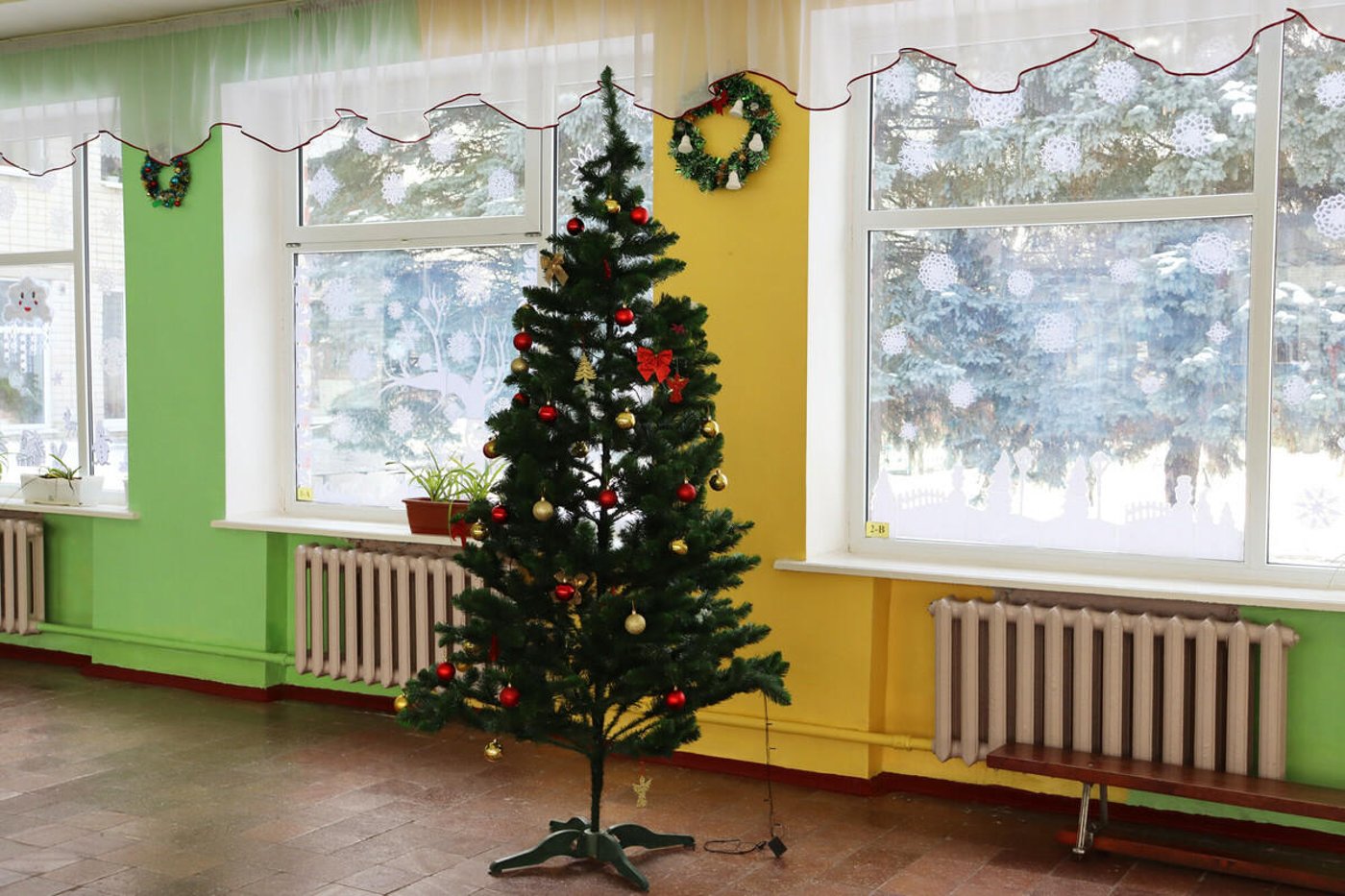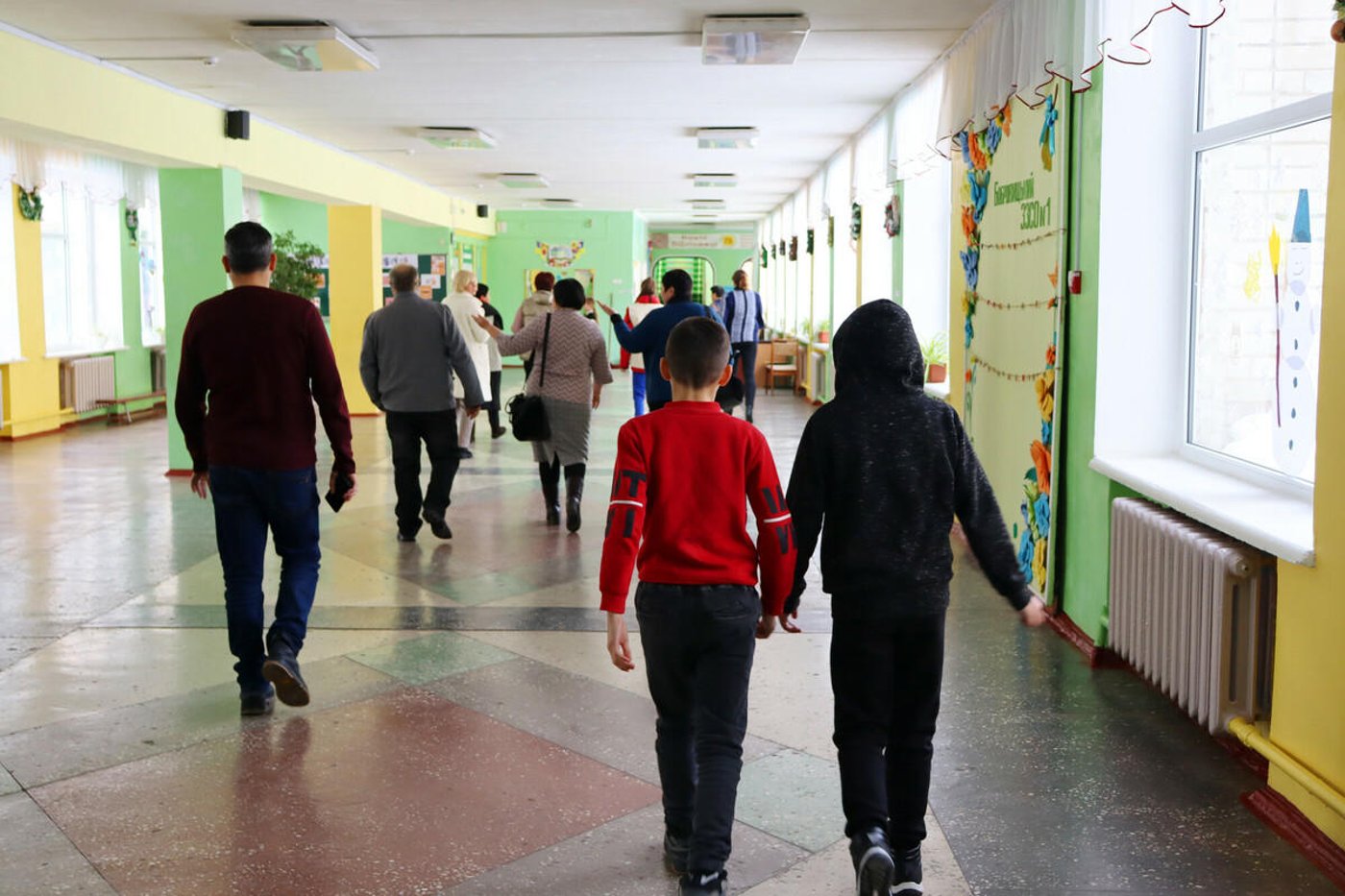Vita Lysenko is the director of a school in the town of Bobrovytsya, approximately 100 km to the north of Kyiv. Back in 2022, Vita welcomed children from neighbouring villages where schools had been severely affected by the war in Ukraine. Now, she not only supervises the education and wellbeing of 800 students, but also oversees the rehabilitation of the school building.
“The displaced children who came to our school were quick to adapt, as we offer psychological support, relaxation time, and exercises aimed at supporting children during air-raid alarms. But the needs at the school are enormous – the roof is leaking, the wiring is old, and many classes and assembly halls need repairs,” she explains.

Over 3,700 educational institutions have been damaged in Ukraine, while more than 360 have been completely destroyed. Additionally, 4,000 schools have been repurposed for other needs, including 3,500 that are serving as temporary shelters for people who have been displaced.
The Kyiv and Chernihiv regions witnessed intense fighting in 2022. Schools suffered extensive damage in cities and villages such as Andriilvka, Bucha, Borodianka and Makariv.
Damaged schools that were fortunate enough to be spared from total destruction are now struggling to allocate funds for repairs. Old and leaking roofs, shattered windows, and the lack of basic amenities such as heating, water and furniture, are just some of the issues school directors face. Furthermore, schools cannot open their doors without adequate bomb shelters.

Anna is an Administration Assistant at the Norwegian Refugee Council (NRC) and her child goes to the school in Chernihiv.
“It was scary to learn that our beloved, beautiful school in the historical centre of Chernihiv had been damaged,” says Anna. “We were preparing to return to school on 1 September 2023 and weren’t sure it was possible any longer. Such terrible events are a heavy blow to the wellbeing of every person, especially for a child.”
The lack of face-to-face learning, coupled with the inability to interact with schoolmates and the ongoing risk of hostilities, has had a dire impact on children’s mental health. Negative emotions can significantly impact their ability to concentrate, affecting learning outcomes.
An integral part of NRC’s response in Ukraine is ensuring that children can access learning in a safe environment and have the support they need to recover from the traumatic events they have experienced.

We are working together with teachers, school directors and local authorities to give children access to safe and quality formal learning opportunities and help them return to school. We rehabilitate school buildings and provide vouchers for construction and household items to enable schools to resume face-to-face education as soon as possible.
In 2023, we rehabilitated eight schools in the Kyiv and Chernihiv regions. We also trained teachers in how to work with children to overcome trauma.
NRC’s psychosocial support programme, the Better Learning Programme, helps children deal with anxiety and stress, and promotes a safe and inclusive environment in the classrooms. It involves teaching children breathing exercises and other relaxation techniques that they can use in times of distress. We estimate that over 7,400 children have already benefitted from our integrated programme approach, whereby specialists from different teams work together to support people in a holistic way.

In a school in Bobrovytsia, children are eagerly waiting for Christmas. They are decorating the windows and classrooms and getting ready to adorn a Christmas tree installed in the recently renovated assembly hall.

“The most important thing is to have a peaceful sky above your head, and everything else we will repair,” says Vita, keeping a watchful eye on the children running around the corridor during the break.
NRC’s rehabilitation work and the psychosocial support provision are funded by the European Union and the Norwegian Ministry of Foreign Affairs.
Sign up to our newsletter to read more stories from around the world.


